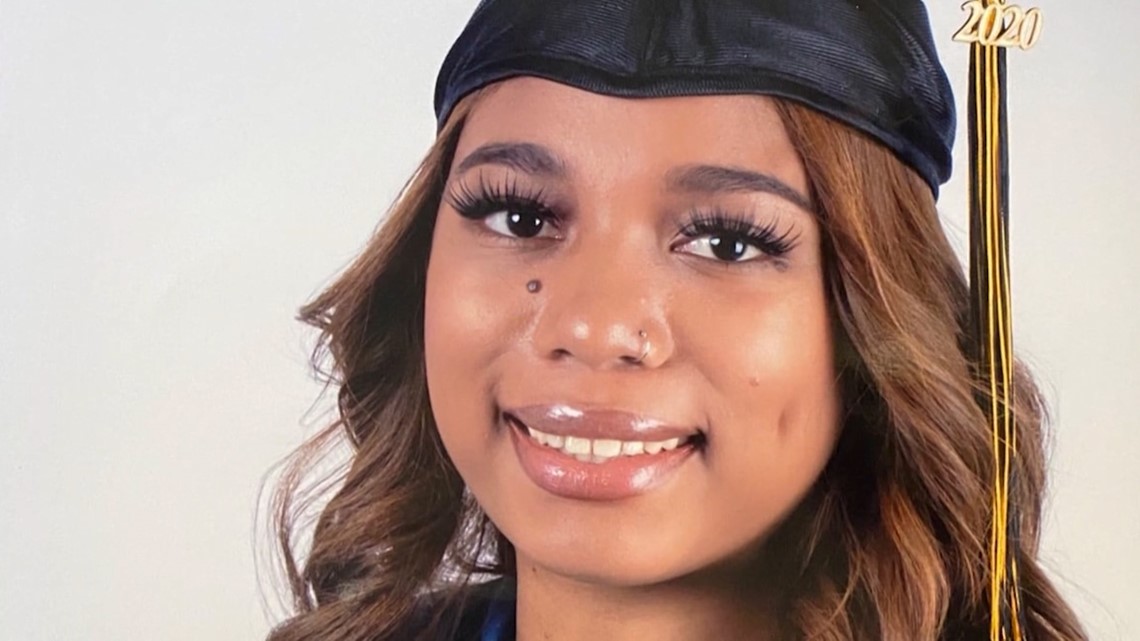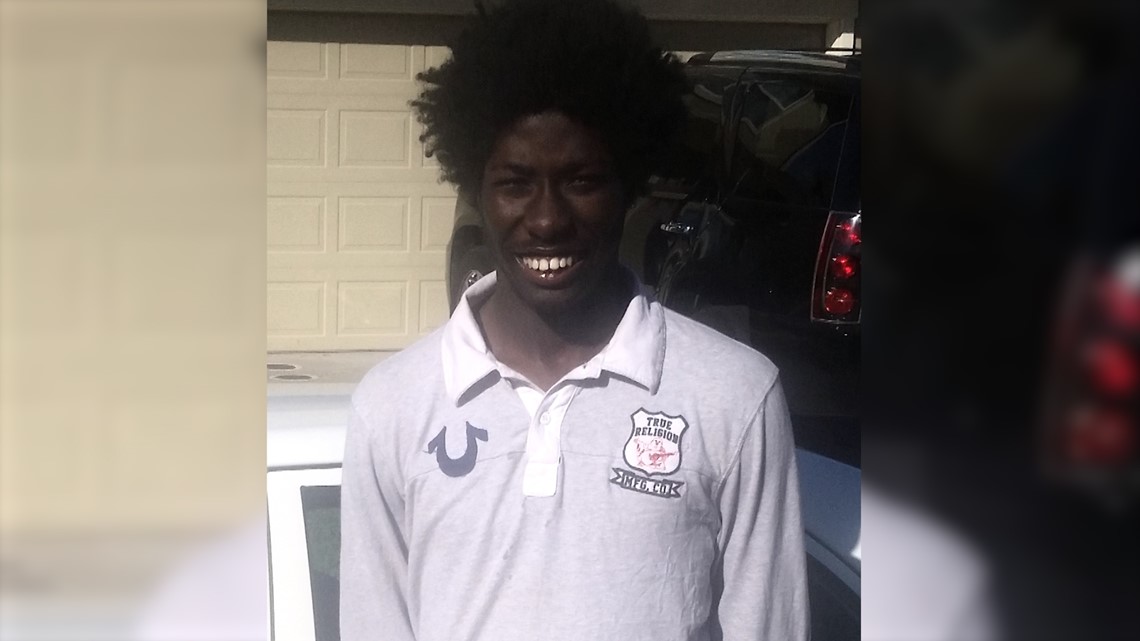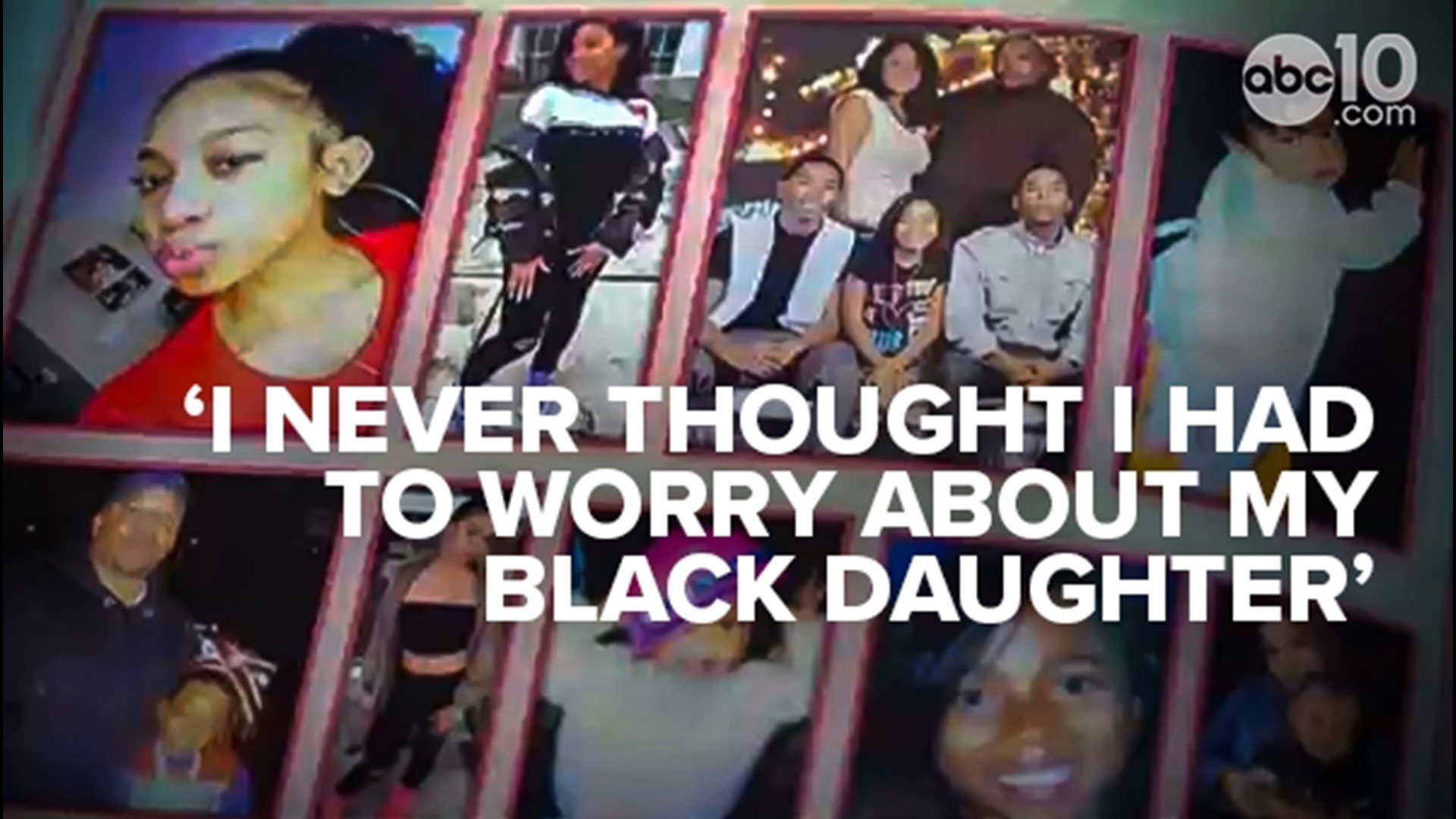SACRAMENTO COUNTY, Calif. — Jenifer Redmond continues to fight for justice after the loss of her 19-year-old daughter. Police say someone shot and killed Sarayah Redmond at the Stone Creek Apartment Complex in Natomas in the early morning on Sept. 25, 2020.
"I have to be her voice," said Redmond. "If I'm not, she'll become forgotten. People do not realize Black girls come up missing and get killed daily, and people don't talk about it."
Police released surveillance footage last year in April, showing a group of people possibly connected to the senseless crime. But, to this day, the case remains unsolved.
The Sacramento Police Department is urging anyone with information to contact the dispatch center at (916) 808-5471 or Sacramento Valley Crime Stoppers at (916) 443-HELP (4357).
"The sad thing is, no one has said anything," Redmond explained. "As a mom, my fear was always what could happen to my sons because they were Black men. I never thought I would have to worry about my Black daughter."


Lugenia Whiteside is a heartbroken mother, too. She says someone shot and killed her son, 17-year-old Deonte Whiteside, in front of their home in Elk Grove on June 23, 2016. Police arrested and charged a group of six people in connection to the crime.
"I don't want no other parent to go through what I'm going through," said Whiteside. "Sometimes, I've wondered, before things happened with my son, did they think about the affect it would have on me. It has to be a lot of us to stand up and not be scared to say, this has to stop."


Gun violence is a growing public health issue in the U.S. According to a recent report released by the Centers for Disease Control and Prevention (CDC), gun homicides increased 35% in 2020 at the start of the COVID-19 pandemic. That's the highest level since 1994.
Even though gun violence impacts all communities and groups, some are disproportionately affected.
The CDC report shows Black people are at least four times more likely to be shot and killed than the overall U.S. population. They're also 12 times more likely than a white person to fall victim to gun violence. In 2020, there were 19,350 gun homicides, with Black victims accounting for 61% and white victims for 20%.
The CDC says, "longstanding systemic inequities and structural racism have resulted in limited economic, housing, and educational opportunities associated with inequities in risk for violence and other health conditions among various racial and ethnic groups."
The Community Justice Action Fund (CJAF) is a nonprofit working to "reduce gun violence in Black and Brown communities by empowering those closest to the pain." In a 2021 report by the CJAF, the organization explains how gun violence is "by design." It also shares how the COVID-19 pandemic intensified the root causes and risk factors that lead to violence in the most vulnerable communities.
"Our country has failed to look at this as a public health crisis," said Gregory Jackson, executive director, Community Justice Action Fund. "America's only response to gun violence in Black communities has been a crime control strategy. We cannot arrest our way out of this problem."
Some risk factors of violence stemming from systemic inequities and structural racism include lack of economic, housing, and educational opportunities.
In an effort to end gun violence, the CJAF, along with other organizations and agencies, recommends:
- Using a public health approach to violence prevention.
- Providing more support to gun violence victims.
- Funding more community violence intervention strategies and programs.
- Reporting lost and stolen firearms.
- Addressing bias in media coverage of gun violence
"We have to figure out how we can heal folks, work with those who have been harmed and impacted, and how we can really look at this as a public health crisis or disease that's spreading in our communities," Jackson said. "Just as much as we have to acknowledge the oppression that's happened, more importantly, we have to start to dismantle it and make sure communities are rebuilt in a way that is more equitable."

